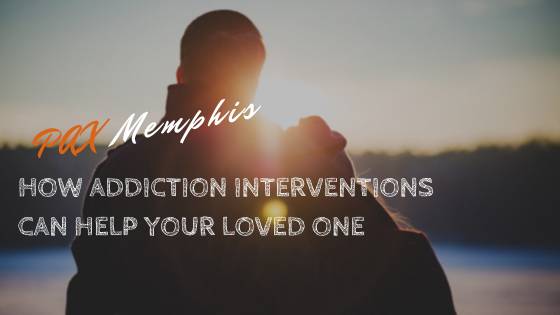Staging an addiction intervention is an option when your loved one is refusing to accept help. The purpose of this strategy is to ultimately convince someone to check into a drug or alcohol rehab. Addiction and alcoholism are life or death situations that should not be taken lightly. In the end, an effective intervention may save your loved one’s life. Simply put – addiction interventions involve structured, planned-out conversations conducted between family and loved ones of an addict where the addict is confronted about his or her substance abuse. In most instances, these conversations are supervised by an addiction intervention specialist.
Many families express concern for loved ones time and time again. However, desperate pleas from family members aren’t always enough to push someone to get help. If merely talking to someone about their problem is unsuccessful, a staged intervention is the next step.
Is it Time for an Addiction Intervention?
It may never feel like the right time to approach a loved one who suffers from addiction. Not only is it a difficult conversation to navigate, but you may not know what to say or how to respond to your loved one. Furthermore, family members may not know exactly what to look out for when it comes to drug and alcohol abuse. You may be unsure whether or not your loved one’s addiction warrants a trip to rehab. Here are a few signs that your loved one is struggling with addiction and that it’s time for an intervention.
- Lying to family members or displaying secretive behavior
- Borrowing or stealing money for drugs or alcohol
- Mood swings, depression, isolation, and aggressive behavior
- Changes in energy and sleep patterns
- Changes in physical appearance (weight loss/gain, track marks, acne, etc)
- Problems at work, school, or home
- Health issues related to drug or alcohol abuse
If drug and alcohol abuse is affecting your loved one’s life in dangerous or worrisome ways, it’s time to consider an intervention.
Staging an Intervention
If you’re unsure of how to help your loved one, the first step is to seek the help of addiction intervention services. These addiction specialists help guide the conversation during an intervention in the right direction. As professionals, they help people who are addicted to realize they need help and agree to go to rehab. As a result, this component of helping an addicted loved one is essential if someone is refusing help.
Educate, Prepare, and Rehearse
Under the consult of an addiction specialist, you will enlist the help of the addict’s family and friends while you develop your intervention strategy. Your strategy may look different from another person’s, but it’s important that yours is centered around the best interest of your loved one. The group may consist of children, siblings, parents, grandparents, friends, coworkers, and more. Each family member affected by addiction should have the chance to participate. Once everyone is on board with the mission, preparation begins.
The next step when staging an intervention is to educate the group about addiction, treatment, and recovery. The more educated and informed everyone is, the better equipped the group is to help. Then, friends and family will begin rehearsing and planning what they will say to their loved one. Speeches or letters are prepared to explain to the loved one how and why each person is concerned. In addition, each member of the group has the chance to express their concerns, requests, and boundaries during the intervention. If the planning stage is left out, important things may be forgotten when the intervention occurs and emotions run high.
Conducting the Addiction Intervention
These types of difficult and emotional conversations should always be held in a familiar, private, and non-threatening location, such as one’s home. Comfort and familiarity give individuals a chance to relax and feel at ease during the conversation. An intervention may last anywhere from half an hour to several hours depending on how the conversation goes, so it’s important to clear your schedule for a decent amount of time. You don’t want to feel rushed during such an important event.
Throughout the intervention, always follow the lead of your interventionist. Remember, even though you are understandably emotional, the professional knows what they are doing and what is best for you and your family. Know that interventions don’t always go the way we expect them to. Anything can happen. However, a good addiction intervention specialist will be prepared for anything.
Sending a Loved One to Rehab
If the meeting goes well and your loved one accepts the help being offered, it’s time to send them to rehab. During treatment, it’s important to stick to the boundaries and guidelines you set during the intervention. If your loved one agreed to comply with a long-term treatment program, they must be held accountable to do so.
In addition, many drug and alcohol rehab centers offer family therapy. These sessions further allow the entire family, and close friends, to heal from the chaos of addiction. Anyone who was involved in the initial intervention or is close to the addict can benefit from family therapy.
People who suffer from addiction are sometimes in denial that they have a problem. However, addiction interventions help individuals understand the devastating nature of their addictions. If your loved one is suffering from addiction, contact our addiction specialists at PAX Memphis to see how we can help.
Medically Reviewed: September 25, 2019

All of the information on this page has been reviewed and verified by a certified addiction professional.










